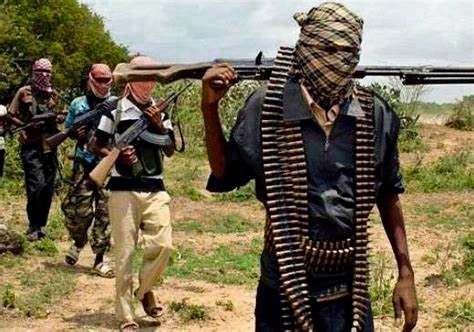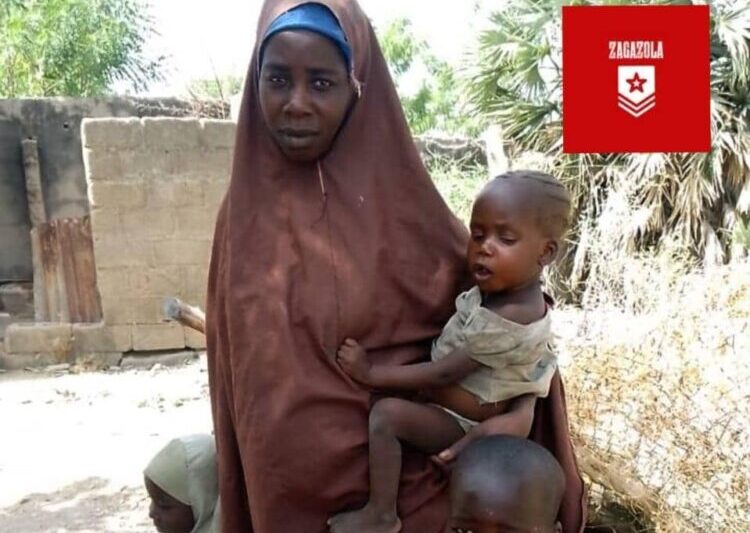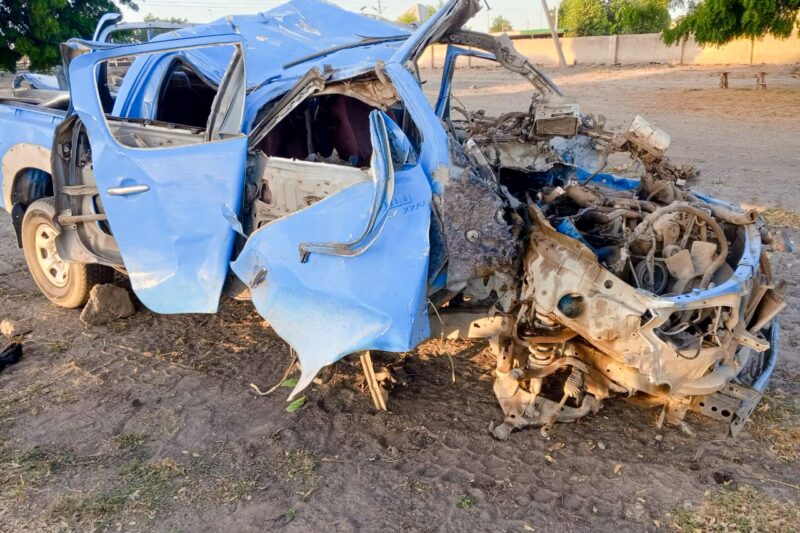May 19 marked the first anniversary of the death of Abubakar Shekau, the most feared former leader of the Jamā’at Ahl as-Sunnah lid-Da’way Wa’l-Jihād (JAS), better known as Boko Haram.
Shekau killed himself during a skirmish with the Islamic State West Africa Province (ISWAP) by detonating the suicide vest he was wearing.
RNI looks back on his life before took over the reins of the notorious insurgent group.
RNI’s head of news Mamman Mahmood spoke to teacher Shettima Mamman, who taught Shekau at the School for Higher Education, which is a section of the Mohammed Goni College of Legal and Islamic Studies in Maiduguri. The school covers both Western and Islamic education.
He said: “Shekau was one of my pupils. He attended the school but disappeared just before graduation. I remember him as a timid boy, who rarely mixed with the other pupils. After class he always stayed at school, reading the holy book at the top of his voice.
“I taught English classes at that time. It was normal for pupils to respond to their teachers during the class. But he never did that. He kept to himself. Before graduation, I investigated and someone told me that he left college. I have did not set eyes on him again, except when he became known as the leader of Boko Haram.
“Thinking back now, the way he always read the holy book at the top of his voice, he had no consideration that he might have disturbed others around him. I think he might have been mentally disturbed or unsound. He used to pay keen attention during classes but, as I said, he was a quiet pupil who did not interact with his teachers,” Mamman said.
“Later I learnt he was a member of a terrorist group. I was attacked twice during the insurgency. But I was lucky to survive. Unfortunately, some of my colleagues who were targeted by the group were killed, including Tahiru Sadiq, Modu Bukar and so many others I can’t even remember all the names.
“We moved to the Kashim Ibrahim College of Education to continue teaching because of the constant threats by the insurgents. Then they attacked the school, burning down buildings, libraries and documents which later on caused difficulty when we had to process certificates for the students.”
Mamman said the school produced many prominent personalities but Shekau turned out to be the worst. But he and his actions had not affected the school in any way because it is known to be educationally successful.
“After it became known that Shekau was an insurgent, the school management took strict measures to ensure no one like that could enter the school again. Before they’re admitted, they are thoroughly assessed. Their backgrounds are checked, including their movements and interactions with people. Even the way they dress is scrutinised. The school now employs members of the Civilian Joint Task Force at the gate as another security measure.
“Shekau had been reported killed several times before last year and there were some who were wary when reports about his death circulated yet again last year. But,” Mamman said, “I am sure Shekau is now dead because if he was still alive he would have shown himself to the world again on social media. I have no doubt he is dead.”
Babakura Mustapha attended the same school as Shekau.
“Back then when we were pupils at the same institution, he sometimes showed some strange behaviour. He would sit alone during school breaks and wouldn’t go out as the other pupils did. Instead, Shekau stayed in the class, reading from the holy book in a loud voice. It was very obvious that he was neither brilliant nor intelligent. I think that was why he did not associate with others. He continued studying very hard all the time while the others took a break. There were so many brilliant students in his class. He wanted to compete with them, but he was not as brilliant as they were. So, he forced himself to learn more to become as knowledgeable as his peers,” said Mustapha.
“Although Shekau was not friendly at that time, he was not violent and he didn’t show any signs of violence. But his viewpoints were always different from that of the rest of his peers and he didn’t associate with others. His relationship with the teachers was not good because he did not respond to what they taught. He did not leave classes when they finished; he just wanted to be alone and to read the holy book, that’s all. He seemed to have trust issues and it appeared that he did not trust anyone. To make friends you need to trust someone. But he did not trust anyone and did not have any friends. No one made any effort to befriend him.”
Mustapha said there was one striking thing about him. He always thought he was right and that his perceptions of life were the best.
Mustapha said he was shocked when he found out Shekau was the leader of Boko Haram.
“We were very surprised and shocked. If you had asked me before if he could lead a terrorist organisation like JAS, or he could be a brutal leader, I would have sworn that he could not until he proved me wrong with his actions. All the people who knew him in his younger days were surprised, even shocked, that he could lead JAS. Not one of us could have imagined it. It was a big surprise.”
Mustapha said: “The Nigerian Army has said a few times that they had killed Shekau. Each time newspapers and online platforms would report it. Then, a while later, Shekau would release a new video showing he was still very much alive. This kept on happening. So, when we heard that he had killed himself last year, we did not know if that was true. Many people were sceptical about it. But now we believe that he is dead. If he was still alive he would have shown himself by now. He would want the world to know he was alive. Because he has been so quiet up to now, I am very sure he is dead.”
Mustapha said he hoped young people would learn from Shekau’s life of violence and that they would shun inappropriate and inhumane acts.
“Shekau’s life of terror should serve as a lesson to us. When we are seeking knowledge, we should be very careful about where to study and who the teacher is. It’s very import to avoid those who would like to mislead us.”
AISHA SD JAMAL








